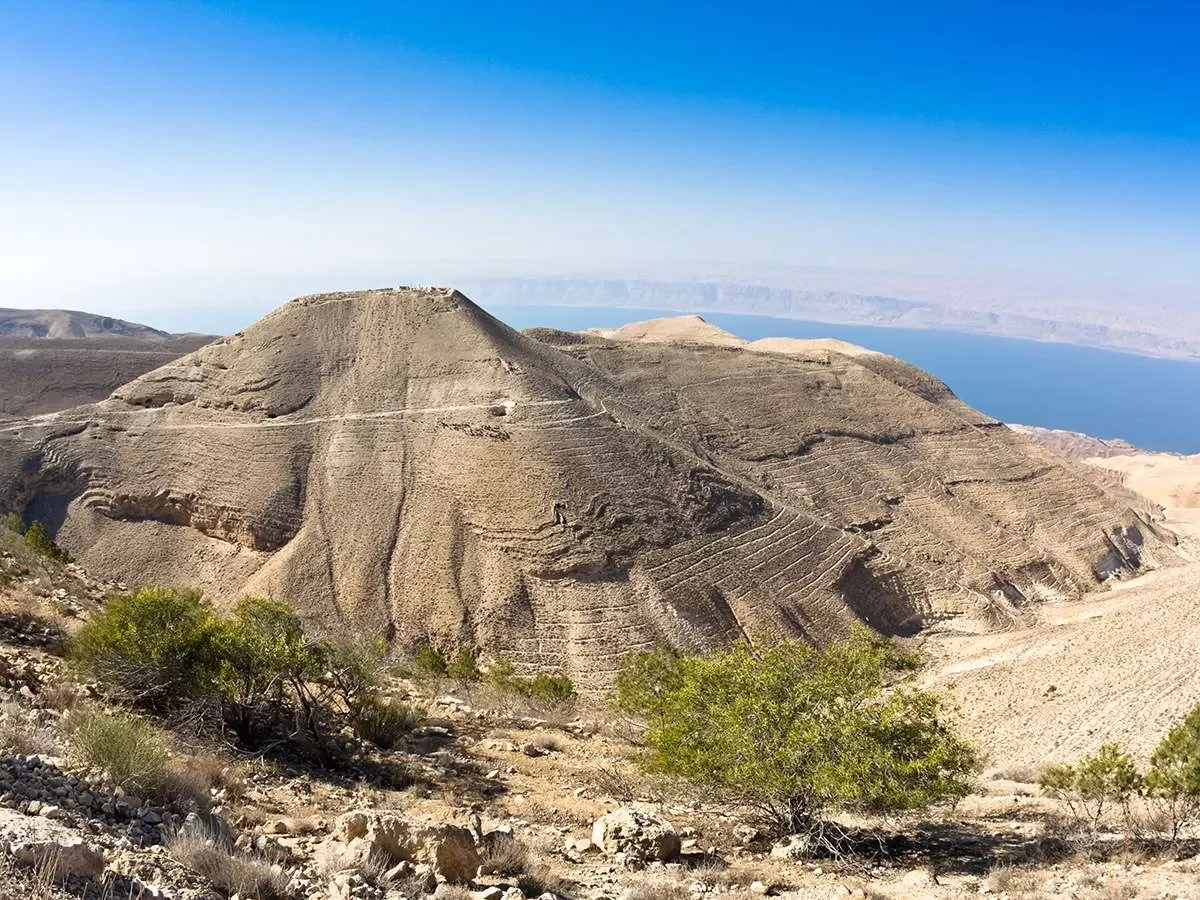Is an ancient site steeped in historical and biblical significance.
Formerly known as Machaerus, it is renowned as the hilltop stronghold of Herod the Great. This fortress is infamously known as the place where John the Baptist was imprisoned and beheaded.
Visitors to Mukawir can explore the ruins of Herod’s fortress, which offer panoramic views of the Dead Sea and the surrounding rugged terrain. The remnants of the fortress walls and palace foundations provide a glimpse into the architectural and defensive strategies of the period. The site also includes the ruins of a Byzantine church, highlighting the area’s historical layers.
Apart from the historical ruins, Mukawir is a point of pilgrimage for those interested in biblical history. The site’s connection to the story of John the Baptist attracts many visitors who come to reflect on the New Testament events that are believed to have taken place here. The dramatic landscape around Mukawir also offers opportunities for hiking and photography, with its breathtaking views over the Jordanian countryside.

The local community around Mukawir is comprised of small villages where traditional Jordanian hospitality is alive and well. Visitors can experience the warmth of local interactions and may have the opportunity to participate in village life. Dining in Mukawir involves traditional Jordanian cuisine, where local eateries and family-run restaurants serve dishes such as mansaf (lamb cooked in a sauce of fermented dried yogurt and served with rice) and maqluba (a dish of rice, vegetables, and meat flipped upside down when served), offering a taste of authentic Middle Eastern flavors.
Overall, Mukawir presents a compelling blend of natural beauty, historical intrigue, and cultural richness, making it a unique destination for those traveling through Jordan.

